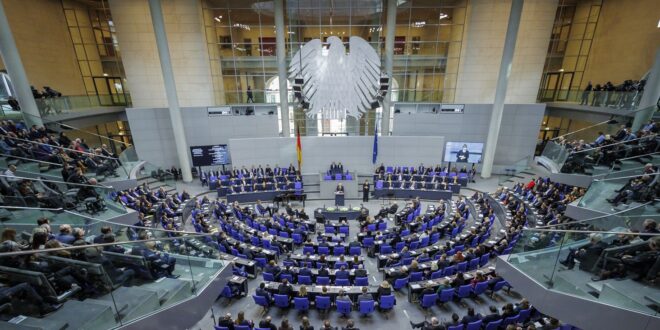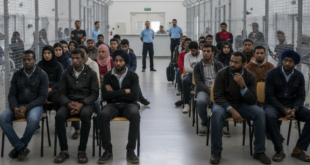Germany’s federal parliament, the Bundestag, has voted to suspend family reunification rights for refugees with subsidiary protection status for two years — a controversial move that has drawn sharp criticism from human rights groups, churches and opposition parties.
The suspension, which primarily affects Syrian refugees, marks the first step in a series of planned reforms by the federal government to reduce immigration. According to the law passed on 28 June, only in exceptional hardship cases will individuals with subsidiary protection be allowed to bring close family members — such as spouses and minor children — to join them in Germany.
Until now, family reunification for this group had already been restricted to 1,000 people per month. The new decision tightens those restrictions significantly, limiting legal migration pathways for many who have fled conflict zones.
Federal Interior Minister Alexander Dobrindt (CSU) defended the measure as part of a broader effort to “steer and limit migration.” Speaking in parliament, Dobrindt said the government was preparing a “bundle of measures” to implement what he called a “migration turnaround.” The announcement was met with vocal protests from opposition MPs, including members of The Left and the Greens, who described the measure as heartless and counterproductive.
Opposition figures stressed that separating families undermines integration, noting that emotional and psychological support from relatives is crucial for refugees trying to build a new life in Germany.
Human rights groups, including Pro Asyl, echoed these concerns. The refugee advocacy organisation warned that many of those affected have already waited years to reunite with their families. Pro Asyl announced plans to explore legal action against what it sees as a violation of the right to family life, protected under both national and international law.
Germany’s Protestant Church also condemned the suspension, calling it “inhumane and lacking in compassion.” Church officials argued that love and solidarity demand that families not be kept apart for years, especially in times of crisis.
Unsurprisingly, the AfD (Alternative for Germany) welcomed the decision as a “small step in the right direction”.
 THE AFRICAN COURIER. Reporting Africa and its Diaspora! The African Courier is an international magazine published in Germany to report on Africa and the Diaspora African experience. The first issue of the bimonthly magazine appeared on the newsstands on 15 February 1998. The African Courier is a communication forum for European-African political, economic and cultural exchanges, and a voice for Africa in Europe.
THE AFRICAN COURIER. Reporting Africa and its Diaspora! The African Courier is an international magazine published in Germany to report on Africa and the Diaspora African experience. The first issue of the bimonthly magazine appeared on the newsstands on 15 February 1998. The African Courier is a communication forum for European-African political, economic and cultural exchanges, and a voice for Africa in Europe.




































